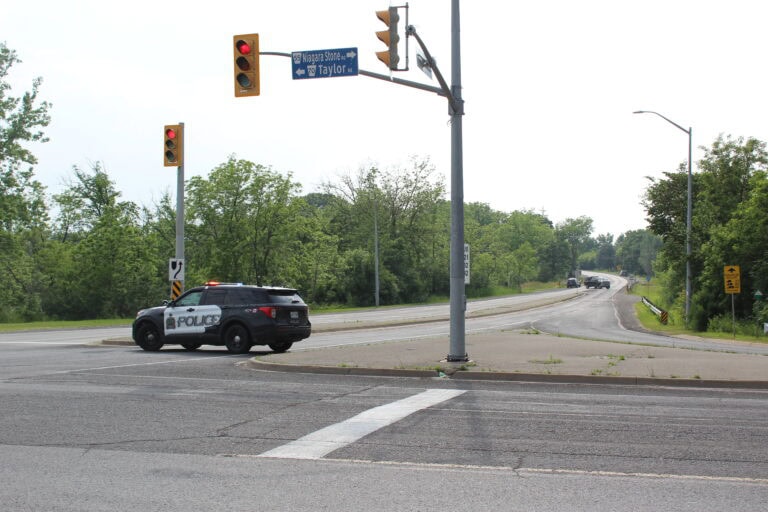Obtaining even basic information from Niagara Regional Police about incidents they are investigating or ones in which charges have been laid can mean the public never knows who was accused, or killed or injured.
This police practice can lead to some odd decisions. For example, on July 21 the police issued a release after a truck in Port Colborne crashed into three other vehicles.
A man from Niagara-on-the-Lake was charged with leaving the scene (a Criminal Code offence) and three counts under the Highway Traffic Act (including careless driving).
The accused’s name and age were published in a news release sent to all media and the information has been widely publicized.
But in the arguably much more serious case, the death of Matthew Wilson, struck by a pickup truck as he walked along Lakeshore Road, the name of the accused remains under wraps as far as the police are concerned. Because the driver is facing a non-Criminal Code charge, the police have refused to name him.
(That did not stop The Lake Report from weeks later eventually discovering and publishing the driver’s name, after people in the community, concerned about the case, told us who was accused and court documents confirmed the information.)
On July 23, the regular “name and shame” list of people in Niagara accused of impaired driving offences was issued. Some media and online outlets publish those lists. We do not.
But among the names was a man who is a Niagara police officer. While other police services have been known to publicly announce when one of their own is accused of a serious offence, that did not happen in this case.
But someone in the community always knows – and a St. Catharines newspaper was tipped about the charge and published a story about it. The officer will have his day in court and the public will know the outcome. Transparency and openness win out.
The philosophy of clamping a privacy Cone of Silence on information carries over to identifying victims of fatalities or serious mishaps.
Lukas Smith was killed while out cycling with his son on the evening of Sunday, July 11. The police issued a release, not identifying the victim, the next morning at 11:42 a.m.
Our reporter found out less than an hour later that Lukas Smith, a gregarious, adventuresome father and husband, was the victim of that tragedy.
This led to interviews with family and friends and the publication of a heart-warming story about the man Lukas Smith was.
That helped the greater community grieve and mourn a young man, gone too soon.
When we asked a few days afterward why the police would not release Lukas Smith’s name (even though we already knew he was the victim), a spokesperson responded they couldn’t do so under “MFFIPA” – the Municipal Freedom of Information and Protection of Privacy – “for privacy reasons. The victim maintains a right to privacy in death.”
We profoundly disagree with that selective interpretation of the province’s privacy legislation. Having read the law and the sections that apply to law enforcement, and consulted with the Office of the Privacy Commissioner, we learned there is discretion and latitude granted to police in the act regarding what they can and should not release. And courts have backed that up in several cases. Society's interests and individual interests must be considered in making a determination.
Niagara’s interpretation of the statute is narrow and leans toward being opaque rather than transparent.
Surely, the many other police forces across Ontario that routinely release the names of victims in major cases are not all violating the privacy act, are they?
Even nine days later the tragedy, one day after Lukas Smith’s public funeral and long after our lengthy story about him had been published and read by thousands, we asked the police for an update on the investigation.
In our message, we mentioned that Lukas Smith was the victim. That prompted an officer to dutifully remind us, “It is my understanding we have not confirmed or released the identity of any of the persons involved in that incident on Irvine. As such please do not take this email as confirmation of the involvement of the name of the person you included by the NRPS.”
We respect the principle the police department is invoking but this whole scenario feels bizarrely Kafkaesque.
Yes, there is most definitely some information that Niagara police can and should keep under wraps. However, as the courts have made clear and privacy legislation states, there are ample instances in which individual and societal interests should be weighed – and society can and should be entrusted to know what has happened in the community.
Convenient blanket bans are an easy, but more troublesome, road to travel.
Next: Where do we go from here?










